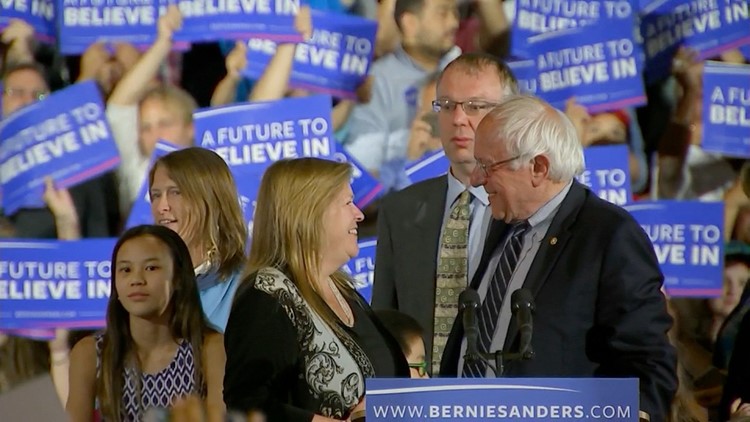Bernie Sanders’ insurgent presidential bid has effectively ended, but for the progressive army that stood at the front lines of his “political revolution,” a new campaign kicks off on Friday in Chicago at a “People’s Summit” expected to draw several thousand supporters.
“There’s going to be some genuine discussion and debate about how to unify all these disparate movements, how to take the energy and enthusiasm, and coalition that came together around the Sanders campaign and continue it,” National Nurses United spokesman Chuck Idelson told CNN.
The Vermont senator, a democratic socialist who sought the Democratic party’s nomination, did not endorse Hillary Clinton on Thursday night and urged supporters to keep up their efforts during and beyond the election season.
Coordinated primarily by NNU, a Sanders-backing union with ties to a supportive super PAC, and People for Bernie, the “People’s Summit” is slated to feature a mix of local activists and some of the campaign’s top national surrogates, including Dr. Cornel West, Hawaii Rep. Tulsi Gabbard, and former NAACP President Ben Jealous.
“Activists are going to congregate and work on process and working groups and have breakout sessions and talk more broadly about what’s next,” said People for Bernie co-founder and Occupy Wall Street alum Winnie Wong. “What does the movement look like? What kind of platform do we demand? What kind of democracy are we going to create together?”
More than 3,000 potential allies are expected to take up those weighty questions during a three-day series of panel discussions, film screenings, and workshop sessions with titles like “Building Independent Political Power” and “Ending Voter Suppression, Mass Incarceration, Deportations and Gender Inequality.” Among the participants will be representatives and members of a broad swath of progressive organizations, including the Working Families Party, Reclaim Chicago, 350.org and dozens more.
Thanks in large part to Sanders, the issues they’ve chipped at for years — raising the national minimum wage to $15, implementing Medicare for all, reducing the gap between rich and poor, expanding voting rights, passing criminal justice reform, making higher education free while ending student debt, and imposing new taxes on Wall Street — have become familiar to even the casual political observer.
But the questions facing the senator’s supporters and the progressive left become more complicated outside the laser focus of an electoral campaign, when voting dates and ballot imperatives offer structure to the fight — and the candidate has a media platform and debates and town halls to communicate to the nation.
Speaking to progressive writer Kate Aronoff in April, organizer and journalist James Schneider, an activist and ally of the leftist British Labour leader Jeremy Corbyn, underlined the challenge — and opportunity — now facing the Berniecrats in the wake of Clinton’s victory.
“The strategy needs to be made clear very early on (after the contest is resolved),” he said, warning that the energy created by the campaign will quickly fade.
“It would be important for some legitimate figure to hold it together. It’d probably have to be Bernie Sanders himself. I understand the problematic elements of saying that you need a singular authority figure in order to launch a sustainable democratic movement, but I think that is the case.”
Further complicating matters is the rise of presumptive Republican presidential nominee Donald Trump. Organizers like Idelson have expressed concern that energy otherwise devoted to crafting an “inspiring, affirmative program” could be sapped by anti-Trump efforts.
Sanders is among the invitees to the summit — Clinton wasn’t asked to attend — and Idelson is “hopeful” the Vermont senator will turn up to address the gathering, but he stressed that presidential politics would be a secondary interest in Chicago.
“The way we’ve described it is this is more like a ‘Bernie moment’ rather than a ‘Bernie movement,'” he said. “It’s a lot of people who have been working in politics for a very long time and Bernie’s a part of that, but this would have been happening even if he had not run. The fact that he did run crystallized a lot of things.”



